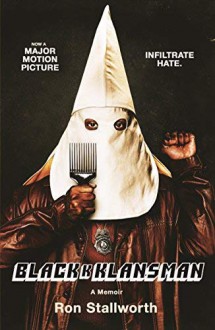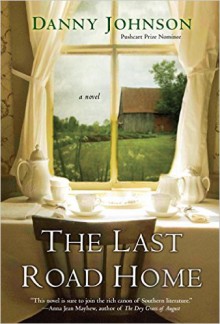
Trudno chyba znaleźć czytelnika, który nigdy nie słyszał o sadze zatytułowanej Dzieci Ziemi, stworzonej przez Jean M. Auel. Nie każdy jednak wie, że cykl ten - dość jednoznacznie określany przez większość jako fantasy - wcale jako fantasy traktowany być nie musi. Przynajmniej jeśli chodzi o pierwszy tom, którego zaliczenie do tego gatunku to nic innego, jak złośliwość, robienie powieści i autorce krzywdy. Ja tam bym swobodnie “Klan Niedźwiedzia Jaskiniowego” nazwał powieścią historyczną, albo nawet, wzbijając się na szczyty własnej grafomanii, prehistoryczną. :)
Jean M. Auel jest bardzo zainteresowana epoką lodowcową, konkretnie jej przebiegiem i wpływem na ludzi w Europie. Fascynują ją czasy, gdy wciąż po naszych ziemiach przechadzały się nie tylko dwa odrębne gatunki ludzi - człowiek neandertalski i człowiek kromanioński - ale także wiele zwierząt, które od dawna nie istnieją, które wyginęły. “Klan Niedźwiedzia Jaskiniowego” opowiada o plemieniu (klanie) neandertalczyków, którzy przygarniają na wychowanie człowieka - pięcioletnią dziewczynkę, która podczas trzęsienia ziemi utraciła rodziców.
To świetna lektura. Jean M. Auel doskonale wie, o czym pisze i to widać praktycznie na każdej stronie powieści. To nie jest książka skupiona na przygodach bohaterów, pełna zwrotów akcji, dynamiczna, z mnóstwem dialogów, która czyta się właściwie sama. Nie, to zdecydowanie bardziej dość powolna, spokojna, wyważona, przemyślana i czasem wręcz naukowa powieść o ludziach, o gatunkach i czasach, w jakich przyszło im żyć. Jeszcze nie o kontakcie - to może nastąpi w późniejszych tomach - na razie poznajemy neandertalczyków takich, jakimi widziano ich pod koniec lat siedemdziesiątych; jakimi widziała ich Jean M. Auel. Autorka mocno skupia się na przedstawieniu gatunku, któremu się nie powiodło, który przegrał rywalizację z nami. Bohaterka - Ayla - kompletnie nie zna swojej historii, jest za mała, by cokolwiek pamiętać i staje się członkiem plemienia bez obciążeń dla swojej pamięci. Jednak natura człowieka kromaniońskiego jest tak różna od natury neandertalczyków, że Ayla i tak odstaje od reszty, nawet gdy ze wszystkich sił się stara być częścią większej całości.
Klan Niedźwiedzia Jaskiniowego to nieduża społeczność, która nastawiona jest na życie w grupie - a jednak składa się z indywidualności. Nie sposób jednak porównać samodzielności poszczególnych członków klanu z samodzielnością typową dla nas. Ten motyw podobał mi się najbardziej - im dalej tym lepiej widać, że sposób życia klanu jest świetnym, by poradzić sobie z dzikimi zwierzętami, z przeżyciem - ale już nie z rozwojem. Bez głębokich zmian neandertalczycy nie będą w stanie dokonać postępu, zatem zostają skazani na wymarcie, co niektórzy z nich widzą, jednak tradycje i zwyczaje zbyt mocno weszły w krew szeregowych członków klanu. Zmiana jest ogromnie trudna, i przy galopujących wręcz jeśli chodzi o rozwój ludziach kromaniońskich bohaterowie nie mają szans. Także Ayla to widzi, choć myśli sposobem klanu, jednak wewnątrz niej powstają pytania; dziecko wraz z wiekiem dostrzega coraz więcej nielogicznych, nieżyciowych zasad.
Wielu zalicza książkę do gatunku fantasy pewnie z rozpędu, z powodu być może wspólnej pamięci neandertalczyków, albo po prostu z powodów marketingowych. Ale nazywać “Klan Niedźwiedzia Jaskiniowego” powieścią fantasy, to tak, jak zaliczyć trylogię “Troja” Davida Gemmella do tego samego gatunku. To nie tylko pójście na totalną łatwiznę, ale po prostu pomyłka, dla niektórych nawet obraźliwa. Książce Jean M. Auel brakuje elementów dla fantasy typowych, to lektura oferująca o wiele więcej, niż tylko fikcję. To nie tylko powieść, ale także rozprawa, w której autorka używa najpopularniejszych teorii swoich czasów, tych dotyczących eliminacji neandertalczyków, wpływu zlodowacenia na krajobraz ówczesnego świata, nagłego gigantycznego rozwoju konkurentów bohaterów książki. “Klan…” jest rewelacyjnie przemyślanym zestawieniem dwóch kompletnie różnych rodzajów ludzi, którzy, być może, z czasem staną się jednym gatunkiem. (*)
Rzecz jasna powieść polecam, czyta się wspaniale, nawet mimo braku dynamiki, mimo pewnej powolności. Jednak brak akcji wynagrodzony zostaje nie tylko świetnym znawstwem tematu, ale także bardzo dobrze nakreślonymi postaciami, których odrębność mentalną poznajemy razem z Aylą. I razem z nią do samego końca lektury czytelnik się zastanawia nad możliwymi działaniami, kierunkami, drogami jakie rysują się w najbliższej przyszłości. A nie wygląda ona zbyt dobrze, czytelnik tymczasem polubiwszy bohaterów, obserwując dramatyczne wydarzenia z końca książki nie ma innego wyjścia, jak tylko jak najszybciej sięgnąć po tom kolejny, bo choć wszyscy wiemy, jaki los spotkał neandertalczyków, to jednak ciekawość, co będzie dalej, jest ogromna. Zastanawia także kierunek, w jakim pójdzie autorka; czy skupi się na Ayli, czy może pociągnie temat naszych “kuzynów”, czy zaprezentuje nam swoje dalsze wizje oparte na nauce?
(*) Co prawda dziś jest o wiele mniej prawdopodobne, by neandertalczycy mogli się krzyżować z ludźmi kromaniońskimi (różne DNA, temu wspaniale poświęcił swoją trylogię “Neandertalska paralaksa” Mistrz Robert J. Sawyer), jednak zupełnie nie przeszkadza to w odbiorze książki.
The Clan of the Cave Bear
Zysk i s-ka 2002


 Log in with Facebook
Log in with Facebook 










